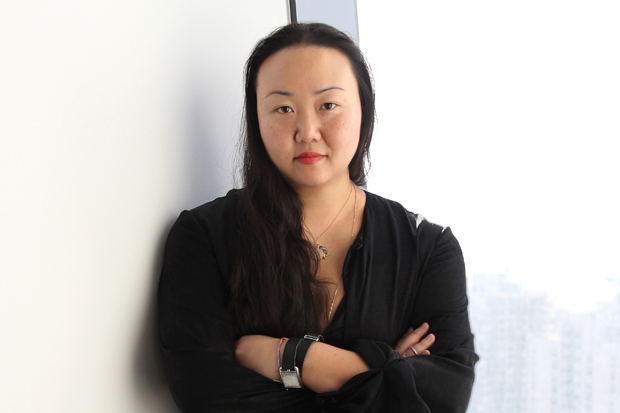Just over a century after Virginia Woolf declared that ‘on or about December 1910 human character changed’, the American novelist Hanya Yanagihara has announced a new shift in consciousness. Jude, the lead character in A Little Life, is known to his friends as the Postman, ‘post-sexual, post-racial, post-identity, post-past’. The obscurity of his origins (left at birth in a rubbish bin) and a childhood of horrific abuse mean he is determined to draw a veil over his past, making him the most mysterious of the four male New York friends at the heart of Yanagihara’s story.
However, his condition is only an extreme — and negative — version of the ambiguity that characterises all the people around him, among whom identity is continually in flux. When one friend, Malcolm, declares that he is not black, and another, Willem, that he is not gay, it is not because they are ashamed of being either, but because they are insisting on a complexity these terms do not allow. The past still infects them (a third friend, JB, paints himself as Steppin Fetchit and ridicules Malcolm as an Uncle Tom), but in the main they have unparalleled liberty to create themselves as they wish, embodying a new kind of self, one with more freedom than ever before.
Some American critics have hailed A Little Life as a great gay novel, pointing to how its melodrama fits the tortured sensibility of much queer literature, and how its portrayal of isolation, fear and shame, but also of enduring friendship, reflects the experience of many gay men, particularly those who have lived through the Aids crisis. But gays are just the advance party for the culture that Yanagihara describes here, their networks of co-operation now the organising principle of many urban lives in which traditional structures of support have collapsed or been jettisoned. Jude’s illness, a matter of non-specific painful ‘episodes’ and a body riddled with sores, is deliberately not named as Aids, in keeping with much else that is left vague or seeming implausible.
Like Karl Ové Knausgaard, who in equally vast novels has also tried to represent the new self, Yanagihara achieves great psychological realism through her reporting of the stifling repetitions of daily life, the sense of entrapment, in Jude’s case, exacerbated by his defensiveness and horror of intimacy. But at the same time, her story is so excessive that it seems to levitate out of history, edging towards the mythic or incredible. As a child Jude meets cruelty everywhere; in adulthood, equally unlikely, nearly everyone shows him kindness and constant solicitousness, including the couple who materialise, as if in a fairy tale, wishing to adopt him as a 30-year-old man. More than this, there are no dates or political events, women are almost entirely absent, and though in this enchanted place everyone becomes successful and travels the world, nothing external makes any impression upon their wealthy New York enclave.
As the novel proceeds, the narrative becomes even narrower, focusing on Jude and his inability to thrive in this free world, to overcome his almost Victorian sense of being ‘ruined’. Soon he stops working in the District Attorney’s office to defend pharmaceutical and insurance companies. It is a move neither he nor his friends approve of, but the professional anonymity provides a safe haven from his fear of exposure and temporary respite from the cutting he inflicts upon himself — the only control he can exert over his tortured body and emotions.
The interesting question about A Little Life is why Yanagihara makes the choice to pursue Jude so relentlessly, magnifying the isolation of his little life. One answer might be that it allows her to deepen an exploration of what adulthood means for this generation, largely unconstrained by spouse or children and vulnerable to accusations of immaturity. In the context of their radical individualism, Jude is a nightmare of unfreedom: a child who can’t grow up, sickened by his weakness and dependency. This condition is so shameful it transfers itself to everyone he comes into contact with, spreading guilt among the freedom-seekers like a contagion.
As her story unfolds, Yanagihara risks a good deal of vulgarity — relying on the secrecy of child abuse to create narrative tension, sensationalising horror of the disabled body — but the payoff for her daring is that it yields complexity. If Jude is full of shame, it is induced by forces beyond his control. And he has resources of hope, continually trying again after every setback or failure. In this way, he epitomises our struggle for autonomy, but also all the forces that militate against it. Ultimately Jude loses the battle, and Yanagihara’s greatest risk is that she suggests we see in his defeat an adult choice, a final act of sovereignty over his little life.






Comments